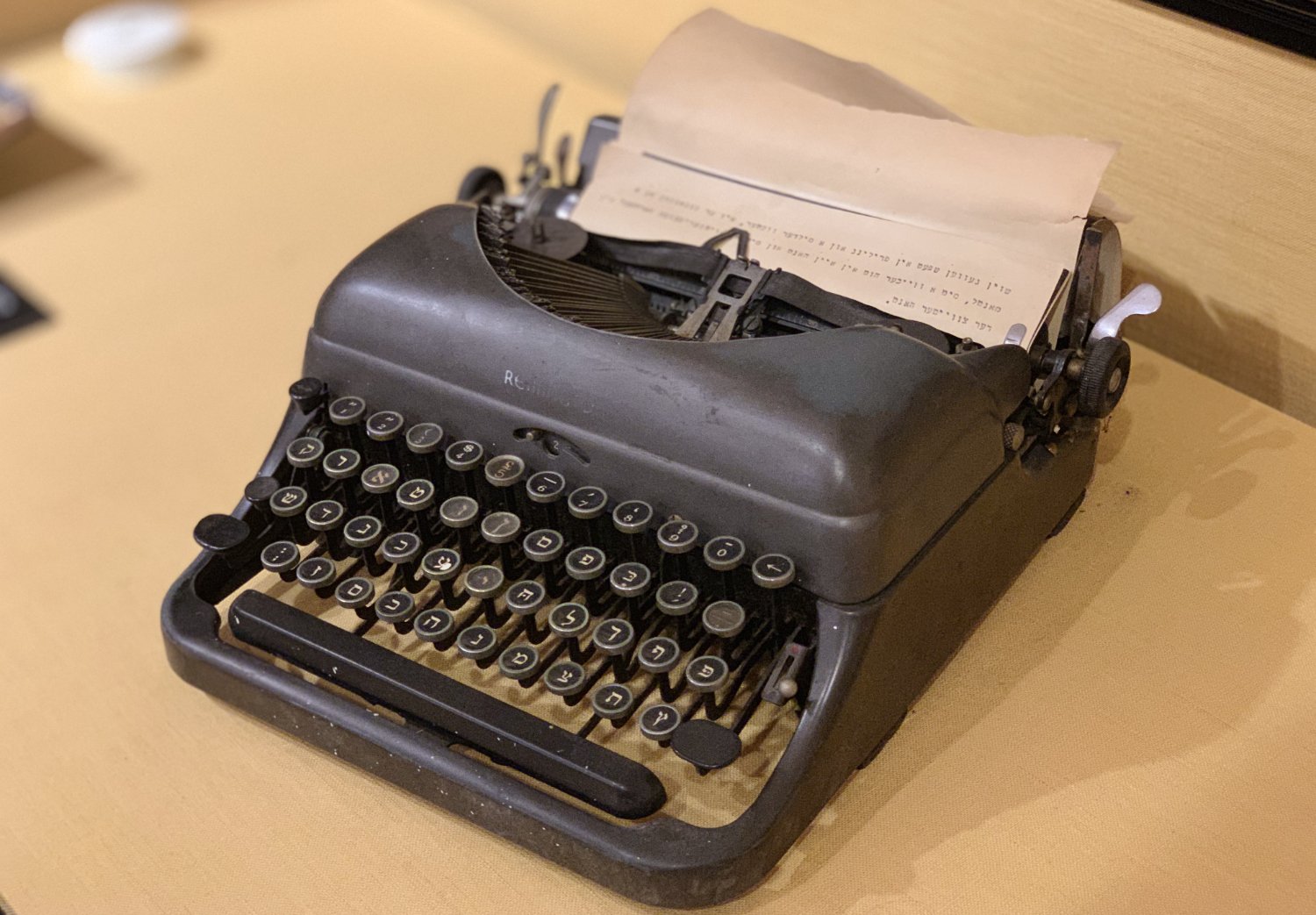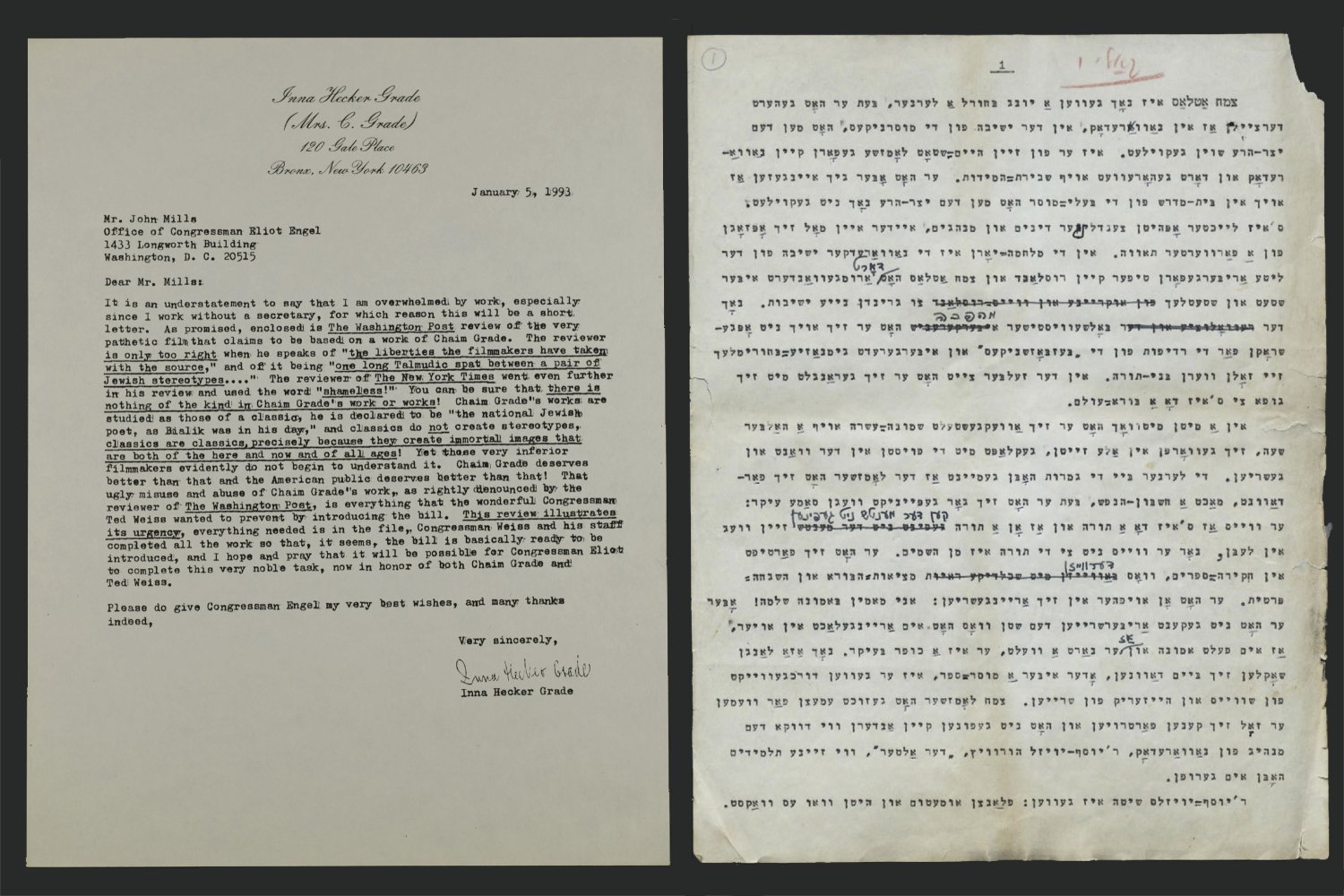Jewish and Yiddish literature lovers rejoice – the entirety of Chaim Grade's work is now available online
This month, the YIVO Institute for Jewish Research and the National Library of Israel (NLI) announced the completion of the digitisation of the papers of Chaim Grade, leading Yiddish writer, and his second wife and translator Inna Hecker. This includes poetry, literary manuscripts, typescripts of prose, lectures, speeches, essays, newspaper clippings, galley proofs, personal notebooks, correspondence and photographs. These span a whole century, from 1910, when Grade was born, to 2010, when Hecker died.
Chaim Grade and Inna Hecker in America, 1978 © YIVO Institute for Jewish Research
Grade was part of that extraordinary generation of Yiddish writers born in Eastern Europe just before World War I, which included Itzik Manger, Isaac Bashevis Singer and Abraham Sutzkever. Elie Wiesel called him "one of the great – if not the greatest – of living Yiddish novelists".
He was born in Vilnius, then in the Russian Empire, the son of Shlomo Mordecai Grade, a Hebrew teacher who died when Chaim was in his teens, and Vela, who sold fruit at a market stall to give her son an education. She and Grade lived in poverty in a blacksmith’s cellar. He studied at yeshiva. As Ruth Wisse wrote: “He had the profound learning, personal experience and Dostoyevskian talent to animate in fiction the destroyed Talmudic civilisation of Europe.” In his early 20s, Grade abandoned his studies and began publishing stories and poems in Yiddish. He was among the founding members of the 'Young Vilna' group of experimental artists and writers.
Chaim Grade’s typewriter. Preserved in the condition it was found when Chaim Grade died, this document contains what are apparently the last lines he ever wrote. The text reads: “Already in the mild weather of late spring, he went out without a coat, carrying a soft hat in one hand and a worn briefcase in the other.” © YIVO Institute for Jewish Research
Grade lost his first wife, Frumme-Liebe Klepfish, and his mother in the Holocaust. Alongside loshn koydesh (the Hebrew holy tongue), he called Yiddish loshn koydushim – the martyrs’ tongue. His post-war poetry is primarily concerned with Jewish survival in the wake of the Holocaust, which Grade survived by finding refuge in the Soviet Union. He and his second wife arrived in New York in 1948.
Left: A letter written in 1993 by Inna Hecker Grade to John Mills, a member of Congressman Eliot Engel’s staff, regarding the importance of her husband’s work and the proposal of a bill to place his works under the Copyright Law of 1976. Right: An original manuscript page from Tsemakh Atlas: di yisheva (The Yeshiva) by Chaim Grade, with handwritten edits inserted by unknown editors. © YIVO Institute for Jewish Research
As a writer, he took to fiction, penning stories in Yiddish. His best-known, My Quarrel with Hersh Rasseyner (1954), describes the chance meeting of a Holocaust survivor with an old friend from yeshiva. The narrator has lost his faith, while the friend has continued to lead a pious and devoted religious life. His other best-known works during his years in America included his memoir, My Mother's Sabbath Days (1955); The Yeshiva (1967-68), a two-volume semi-autobiography about his yeshiva years; and Rabbis and Wives (1974), a finalist for the Pulitzer Prize. While less famous than Bashevis Singer or Sholem Aleichem, Grade is considered a pioneering Yiddish writer of his generation, straddling the literary world of pre-war Vilnius and post-war New York.
By David Herman
Header photo: Chaim Grade, Israeli President Zalman Shazar and Inna Hecker Grade at a literary event in New York ca. 1971 © YIVO Institute for Jewish Research
Chaim Grade’s entire archive is now publicly accessible on the YIVO Institute for Jewish Research and National Library of Israel websites.




